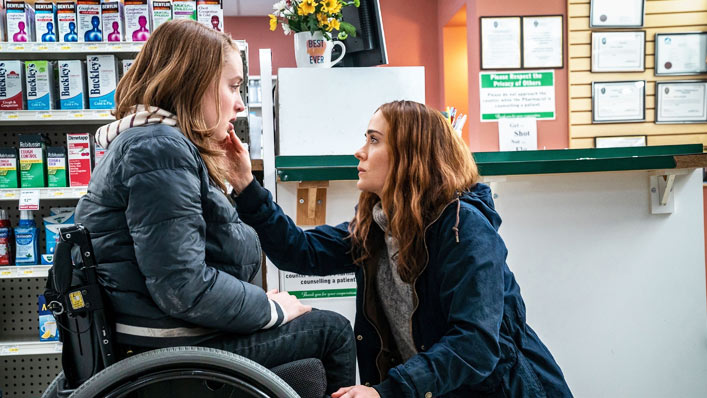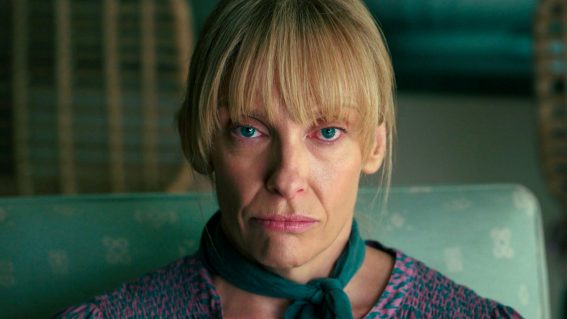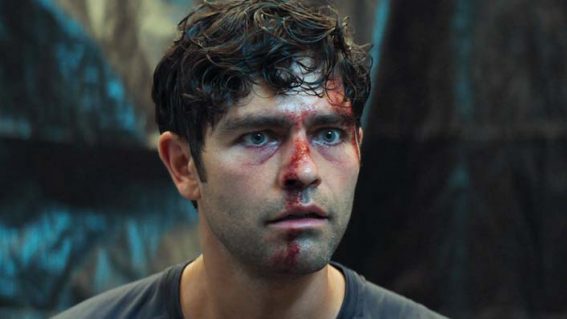Netflix’s mother-daughter thriller Run is saved by its two lead performances

Netflix thriller Run follows a wheelchair-using teenager (Kieran Allen) who discovers her mum (Sarah Paulson) might not have her best intentions at heart. Here’s critic Sarah Ward’s review.
Flipping the script isn’t just a cliché for writer/director Aneesh Chaganty and his co-scribe Sev Ohanian: it’s the exact approach the pair takes with Run, their second feature after their 2018 breakout hit Searching. In the latter, a father frantically tries to find his missing teenage daughter, his desperation increasing with every minute. In the former, wheelchair-using high schooler Chloe Sherman (Kiera Allen) can’t leave the house without her mother Diane’s (Sarah Paulson) help. The 17-year-old is barely permitted to do anything within its walls without her mum’s ever-watchful presence.
See also
* All new movies & series on Netflix Australia
* All new streaming movies & series
Born premature, as Run’s opening moments show, Chloe’s life has been shaped by her medical conditions. Her asthma, diabetes and heart arrhythmia all require an intensive regime of medicines, and she’s also paralysed from the waist down. Diane controls every aspect of the smart and studious Chloe’s existence—from homeschooling to internet access and the vegetables she eats. After her mother returns from the pharmacy one day, Chloe notices that a bottle of pills she’s told are for her actually bears Diane’s name.

Chaganty and Ohanian foreshadow that all isn’t perfect in the Sherman household long before Chloe’s big discovery. An early glimpse of Diane complaining to a parents’ group about the burdens of motherhood and the bliss that her daughter’s impending college years will bring sets the tone, while also proving out of synch with the picture of seeming domestic bliss that follows. Chloe dreams of the freedom college represents but, as she awaits news about her applications, Diane maintains control over even the simple act of checking the mailbox.
Diane reassures Chloe that she will be informed the moment her acceptance letter arrives. She doesn’t wink when she utters the above words, but she may as well. With its inverted take on Searching’s premise, its easy fit into the maternal horror genre and its unsubtle embrace of factitious disorder imposed on another (formerly Munchausen syndrome by proxy), Run may as well be nudging and elbowing its audience from the outset too. There’s no mystery in this psychological thriller; no-one is left puzzling about Diane, even as the film endeavours to drip-feed the reasoning behind her overzealous parenting and trade in easily foreseeable reveals.
Chaganty knows how to evoke tension in a technical and mechanical sense, and in claustrophobic confines. The film’s moody score, by Searching alum Torin Borrowdale, bristles with unease. Run’s framing, including cinematographer Hillary Spera’s telling shots of Chloe through windows, compellingly convey the oppression and unease that permeates the teen’s life. But the twists and thrills always feel manufactured, even with such a potent theme sitting at the movie’s core: that the person who brings us into the world might not deserve our unquestioning trust. And that their love may not be as unconditional as it seems.
Still, favouring such a blatant approach comes with its upsides, especially where Paulson is involved. Even when her performances rise well above the material she’s working with (as was the case with 2020’s Ratched) she’s always entertaining to watch. That’s especially the case when she flips from calm to anxious to explosive in what seems like an instant, which happens increasingly as the film rolls by. Chaganty gives Paulson much-needed room to play her character straight, while also peppering in big moments that almost border on camp.
Alongside newcomer Allen, Paulson’s is a movie-saving performance, although the two actors bring different strengths to their parts. Allen segues from content to suspicious to determined convincingly and engagingly; the authenticity baked into her portrayal can’t be underestimated. Even with each and every plot development feeling both predictable and forceful, Allen ensures that viewers know what it’s like to sit in Chloe’s seat. In a career-sparking turn, she also mirrors Run’s storyline aptly, more than holding her own against Paulson’s formidable presence.



















